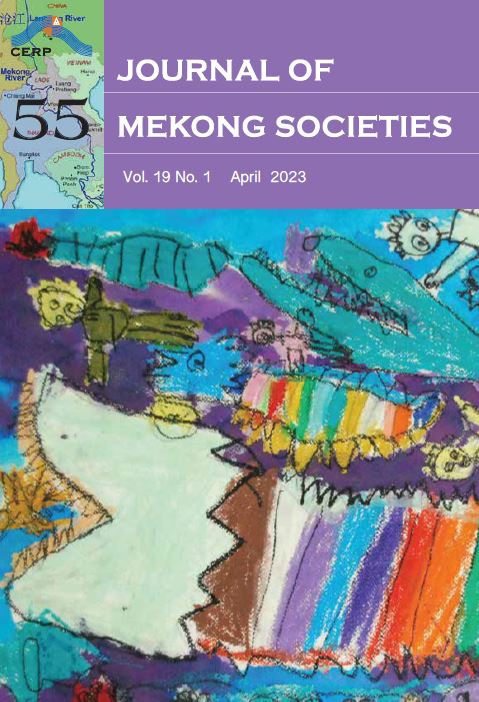Conflicts and Negotiations among Multiple Stakeholders of the Sai Transboundary River Management between Northern Thailand and Eastern Myanmar
Main Article Content
Abstract
Efficient utilization of water without conflict is always a difficult issue at the national level, still more at the transnational one. This article investigates the detailed process of conflicts and negotiations over the Sai transboundary river management between Mae Sai district, northern Thailand and Tachileik township, eastern Myanmar. Applying the concepts of critical water resource management and the social-anthropological research methods of in-depth interviews and observation, the article identifies the multiple stakeholders at both intra- and inter-state levels and analyzes the reason why seemingly simple complaints of Tachileik people against weirs constructed by Mae Sai farmers as the cause of floods have developed into larger and complicated conflicts. The analysis illuminates the difficulty and challenges of transboundary river management. At the same time, it also reaffirms that in the case of transboundary resource management, the farmers’ related conflict is not simply a dichotomous confrontation between the state and the local, but a diverse and complex one among multiple-level stakeholders.
Article Details

This work is licensed under a Creative Commons Attribution-NonCommercial-NoDerivatives 4.0 International License.


